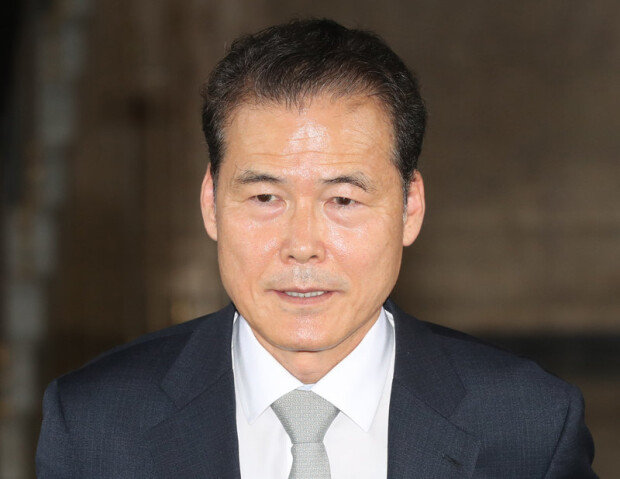Unification Minister nominee: I do not advocate coercive assimilation for unification
Unification Minister nominee: I do not advocate coercive assimilation for unification
Posted July. 01, 2023 07:58,
Updated July. 01, 2023 07:58

Unification Minister nominee Kim Young-ho (photo) said on Friday that he does not intend to pursue a forced assimilation of unification. It appears that he is seeking to address concerns raised before the National Assembly confirmation hearing, as he has faced criticism for making strong statements about North Korea in the past, including advocating for the “overthrow of the Kim Jong Un regime” and “regime destruction” in his previous media contributions.
Candidate Kim met with reporters this morning at the office for the personnel hearing at the Ministry of Unification Office of the Inter-Korean Dialogue in Samcheong-dong, Jongno-gu, Seoul. He emphasized, “The Republic of Korea is committed to pursuing peaceful unification, and the government's goal is to achieve a peaceful and gradual reunification.” In a press article from 2019, he expressed that “the path to reunification can only be opened when the Kim Jong Un regime is overthrown, North Korea is liberalized, and the political systems of the two Koreas merge into one.” During the Q&A session on the same day, Kim clarified, “As a scholar, I have explored various scenarios for reunification in the event of a change in North Korea.”
In regards to North Korea policy, the minister nominee underscored the need for a transformation in the role of the Ministry of Unification, saying, “We must adopt a values-based approach and adhere to principled actions in the future.” Additionally, he highlighted the significance of addressing the North Korean human rights issue as a key component of North Korea policy. He proposed active consideration for a Korean Peninsula-specific Helsinki process, which would encompass the North Korean nuclear issue, human rights concerns, and economic cooperation matters, forming a comprehensive framework. The Helsinki Process refers to the 1975 agreement signed in Helsinki, Finland by 35 countries, including the U.S., the Soviet Union, and various European nations. Its main objectives were to promote mutual sovereignty, prevent conflicts, and safeguard human rights. During the Cold War, the Helsinki Process served as a platform for dialogue between the East and the West, ultimately contributing to the collapse of the Soviet Union and the Eastern Bloc.
The Democratic Party of Korea called for thoroughly examining the initial reshuffling within the Yoon Suk Yeol administration. During the party's Supreme Council meeting, Chairman Lee Jae-myung of the main opposition party expressed concerns about the proliferation of far-right rhetoric, far-right YouTubers, far-right personnel, far-right policies, and even the notion of a far-right government and president.
“I have my doubts regarding the suitability of a person perceived as an extreme North Korea antagonist to assume the role of Minister of Unification, a position responsible for establishing the groundwork for peaceful reunification and leading inter-Korean dialogues,” Lee said. He also criticized the appointment of Kim Hong-il, the new head of the Anti-Corruption and Civil Rights Commission, saying, “It is inappropriate to appoint a ‘political prosecutor’ who demonstrates allegiance to a specific political faction.”
Na-Ri Shin journari@donga.com · Seong-Ho Hwang hsh0330@donga.com
Headline News
- Joint investigation headquarters asks Yoon to appear at the investigation office
- KDIC colonel: Cable ties and hoods to control NEC staff were prepared
- Results of real estate development diverged by accessibility to Gangnam
- New budget proposal reflecting Trump’s demand rejected
- Son Heung-min scores winning corner kick







